Your mind is constantly jumping from one idea to another. You can barely focus on what you are doing now, as your side-projects seem to jump in from all angles. You struggle to complete one thing; and in the meantime, you get so inspired by other stuff that you end up collecting ideas, one after the other, without ever focusing on one.
Sound familiar?
It does to me. I’m a creative person too, after all. Take a quick look through my writing portfolio and you’ll find all sorts of things, from fiction to articles, from video games, to RPG adventures. I can barely stay put. There are so many things I would like to do – but so little time to do them.
The thing is, this behaviour is entirely unhealthy – both for our minds and our personal/professional development. It can betray a lack of focus or a lack of will to remain concentrated on one thing alone, without being sidetracked. It belies a lack of time management skills – even though we know perfectly well that it is not true. But it certainly suggests we’re unable to prioritise tasks and follow things through to completion.
So how can we change that? How do you actually stop coming up with ideas and start completing your projects?
While I can’t help you with your ideas output (I know I can’t stop me from getting inspired), I will tell you what I personally do to keep myself organised. But to get there, we first need to understand why all of this happens.

Image credit: Janusz Slyk
Why do you embark on so many unfinished projects?
Some time ago, I found this piece on Medium by a 26-year-old writer. It hit me right in the guts with its accuracy, as an almost perfect depiction of the past few years of my life. People tend to think that having more hobbies than hair can be fun, perhaps an indicator of an exciting life – they don’t realise how much of a mess it is; they don’t realise how difficult it is to focus on just one thing at a time.
Attention-deficit is a real thing for many people, clinically diagnosed or else. I was never diagnosed with ADHD, but as a multi-potential, over-achieving creative, I do believe I may have some traits. However, our tendency to over-achieve and reach into a number of different fields, sectors or interests at once is not to be confused with ADHD – at least not necessarily. What we want is to specialise in everything that interests us. In my case, that is films, books, TV shows and video games. Coincidentally, a number of passions which require too much time to experience – let alone write.
I have a rather simple explanation for all this. We start too many projects at once because we don’t like where we are. Ambition plays a big part in that thought process, at least in my case. I know I want to publish a book, I know I want to be recognised as a writer, I know I want to write a video game. As a result, I try to do all of these things at once – and refuse to focus on just one. It becomes way worse when you are stuck in the wrong job, of course. Back when I worked in retail (not necessarily the best output for creativity), I started to learn how to code, I opened my own website, I followed about 10 courses in a couple of months, I started developing a few video games and maintained a Medium page – all of this in the space of two years. It’s madness. You can imagine how that worked out for me.
If we are trapped in the wrong job, we want to escape. Our only desire is to escape. We want to be elsewhere, we want to be someone else, we want to achieve our goals – and to do so, we start a number of projects which help us escape from our limited reality. Except then things get complicated, and the novelty wears off, and we’re left with the remainders of what used to be an exciting spark of an idea. It’s a red herring. It’s an illusion of control. Where in fact, sometimes, our life is what we should truly try to fix.
This is of course in the most extreme of cases, but most of the times the problem isn’t necessarily in our life. Not everything has to do with our personal frustrations and traumas, after all. The truth is that we lack structure. We lack scope. Whenever we come up with an idea, we get instantly excited by all of its implications – and soon forget it when the next great thing comes along.
Maybe we get bored too easily. Maybe we are unable to commit. Maybe we just get discouraged by the first obstacle or challenge. The result is a messy notebook full of ideas, a cramped Notes app on our phone or, worse, a number of started projects that we never saw to completion.
There is a simple solution to all this. It’s called planning.
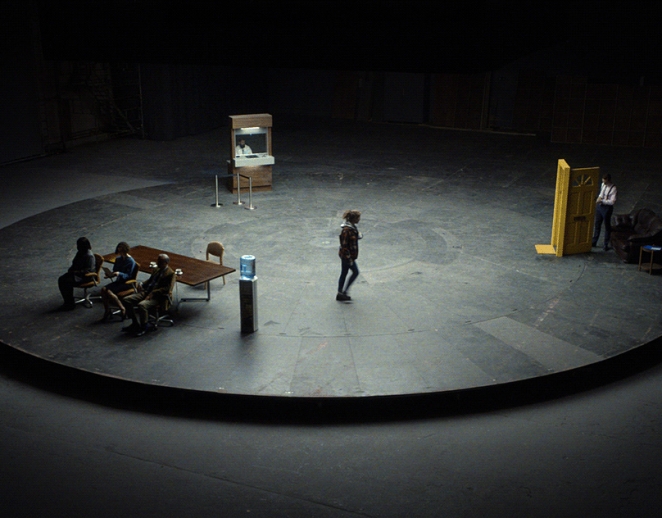
Image credit: Mike Watson
How to stop this from happening
Bear with me for a second. Open your notebook or document of ideas – yes, the one overflowing with inspiration and prompts and concepts that you think you’re never going to create. It may not be something as physical as a notebook, but you will have a list of ideas somewhere. If you keep everything in your head, kudos to you – please teach me how you avoid forgetting stuff.
Note that if you do forget stuff, perhaps you should start an ideas document.
Pick one of your ideas. It shouldn’t be something you’ve already worked on – it should be an entirely new thing that you have never touched before, apart from the bare concept and bones. You will have something like that.
You should know that, if you start too many projects at once, it’s because you’re setting unreasonable goals for yourself. You can’t run if you’re barely learning how to walk. You can’t write the next award-winning masterpiece of a campaign if you’re still focused on learning the basics. Start small, then build on that success to create something bigger. What is the first step to start working on your undeveloped idea? What are some basic tasks you should account for? Usually, every good project starts with research; what sparked your idea? Do you even have a solid idea? What has already been done in the space, and what can you add that is new?
If you start too many projects at once, you're probably setting unreasonable goals for yourself.
Set some time aside specifically to cover those first steps. Ignore everything that your mind is trying to tell you. You are good enough. You can do something you will be proud of. Yes, it will require time – but you can structure that time. You have all the time in the world, despite what our society may make you believe. As far as you know, you will still be here tomorrow, and the day after that, and the week after that; you have time to do this properly. Use time to your advantage.
Structure helps. I use Notion, a database management and collaboration tool which is excellent to gather ideas and plan your creative life. I took a very short course some time ago on how to use Notion properly, and I really don’t know how I did everything before then. I now structure everything in Notion, from my courses to creative and writing projects, from video games I want to play to books I want to read. Yes, I’m a desperate case, and you may abhor that amount of structure in your life. But especially when it comes to creative projects, structure is a life-saver. It gives you a plan, and it gives you the tools to stick to it.
You don’t have to use Notion of course. You can use anything that you are comfortable with, from Apple Calendar to Trello to a simple document in Word. Whatever gives you some structure, that is what you should aim for. Plan all your steps carefully, and most importantly, set a reasonable scope for yourself.
What is scope?
Scope is something that becomes incredibly useful in project management to help manage expectations and deliver a project by a certain deadline. It is nothing more than a set of deliverables, something you set for yourself and that you know you can stick to. It gives you a clear goal, something achievable to aim for.
You’re probably familiar with the SMART framework. Objectives should be Specific, Measurable, Attainable, Relevant and Time-Based. This is the same reasoning behind setting a scope for yourself: you need something that is not abstract, something that is measurable against a set of criteria, something that is achievable, relevant to the project and deliverable within a certain timeframe.
One example: for my last Call of Cthulhu RPG adventure, I set the simple scope of about 9,000 words to be completed by the 31st of July. I started on the first day of the month and worked consistently, on a schedule, to reach that goal one step after the other. The scope was not too unreasonable – I can easily write about 1,500 words per hour, give or take. If I couldn’t find 4 hours to write the adventure, I simply wasn’t committed to the project enough.
Keeping that goal in mind helped me immensely in reaching publication day. I made some preliminary research to understand what I was diving into; I wrote the adventure itself; I worked on the design and layout, then did all the necessary steps to have it published in time. I had specific weekly goals, specific to-dos that I used to structure my days and make sure I was following a tight, yet human schedule. Sure, it was a very dense month; but I must admit that I did the bulk of the writing in just a week, and worked on the layout over about a weekend.
It taught me one simple thing about scope: it often looks bigger than what it actually is. Yes, you will need to put in a consistent amount of time preparing to get the work done, but that preparation will pay off in the end and enable you to deliver a project in the best shape it can be.
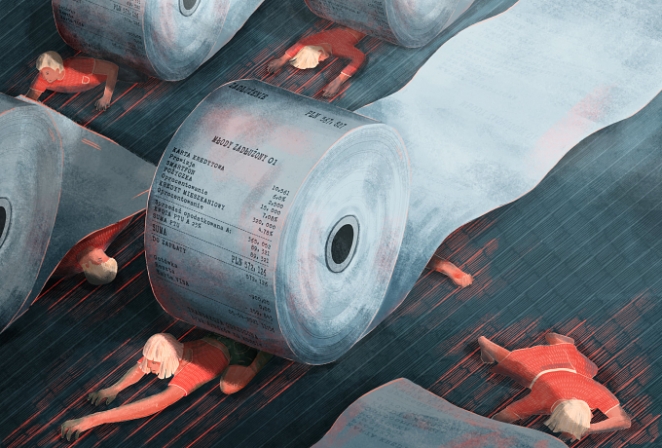
Image credit: Kasia Kozakiewicz
A few more things to look out for
Lacklustre or unreasonable planning and scope play a massive role in making things harder for you, but there are other elements you should look out for, some of them more practical than others. Most, however, have to do with your own approach to the project.
First, you need to be willing to commit. You won’t be able to complete a project overnight, you will need a time schedule and you will need to set up work sessions accordingly. If you are under-committed to your idea, perhaps it isn’t the right idea. Perhaps it’s just a spark which sounds exciting now, but may lose its charm later. This is what the research phase is for; to refine that idea, to understand if it’s as strong as you believe it to be.
Allow yourself about 50% more time to finish a task. According to Parkinson’s law, “the task expands according to the time allocated for it.” The opposite is also true; our time estimates for tasks are always optimistic, but in truth, you will often need more time than you believe to complete something. If you think a task will take 10 minutes, think again and make your estimate 15. If you think it will take an hour, make it 1.5 – and so on. You may be right with your first estimate – but it’s best to deliver early than late.
Ignore your brain. It’s there to protect you from harm, and in the case of creative projects, harm is almost always disappointment. Whenever a task becomes too difficult, your first urge will be to give up – especially if no money is at stake. You should keep in mind that everything is always more difficult than you think; but you can also achieve more than your brain makes you believe. Ignore the doubts, ignore the fears, ignore everything; push through every single moment and reach the end of the current task. It helps to have something to look forward to, of course; perhaps you find research boring, but you thrive when you have to work on the first concepts. Certainly you’ll love seeing a completed work in all its beauty. Look forward to that, and build it piece by piece.
Lastly, drop the perfectionism. One of the reasons you keep abandoning projects may be that you are over-refining. In my experience, perfection is unattainable; if it is, the time required to obtain it is often unreasonable and shoots a project way past the deadline. Learn when to stop and make things as good as they can be; if there is an intrinsic value, people will see it.
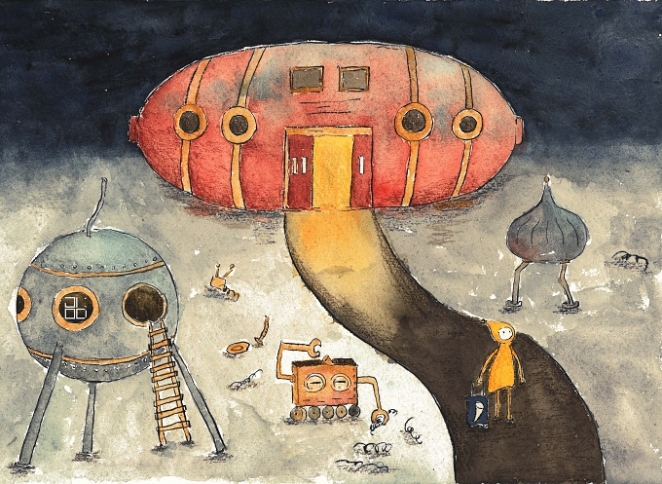
Image credit: Kelly Zou
How to stop worrying and love achieving
One of the most common problems of hyperactive minds is that we worry too much about the details. We spend too much time trying to work out what to do, too much time deciding rather than acting. The first step you take is drop that unhealthy behaviour. Set up a system that works for you, be it in Google Docs, Notion, Trello, Evernote or any other software tool – do it with pen and paper, if you must. Plan things according to a schedule that works for you, then spend minimal time maintaining that system. We all love to see boxes being ticked after all – it gives us a warm fuzzy feeling and a sense of completion. That is what you should aim for; a set of tasks, brief things that you can tick off a list.
Stop spending so much time trying to decide what to do, and start doing. That is most likely what’s holding you from taking real action on your projects. If you can do that, you’re already on the right path to completing your first big thing. If you’re proud of the result, you’ll want to do it again; if you hate it, you’ll know how to improve it.
The only way from there is up.




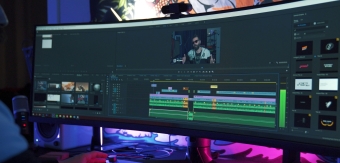
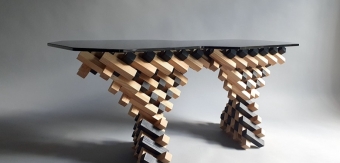

Sara Dee October 7th, 2021, in the evening
I so needed to read that. Another Multi-Potentialite right here overwhelmed with projects and looking for focus. Many thanks. I've got my strategy list begun already. something I work towards will now have the room to fly.